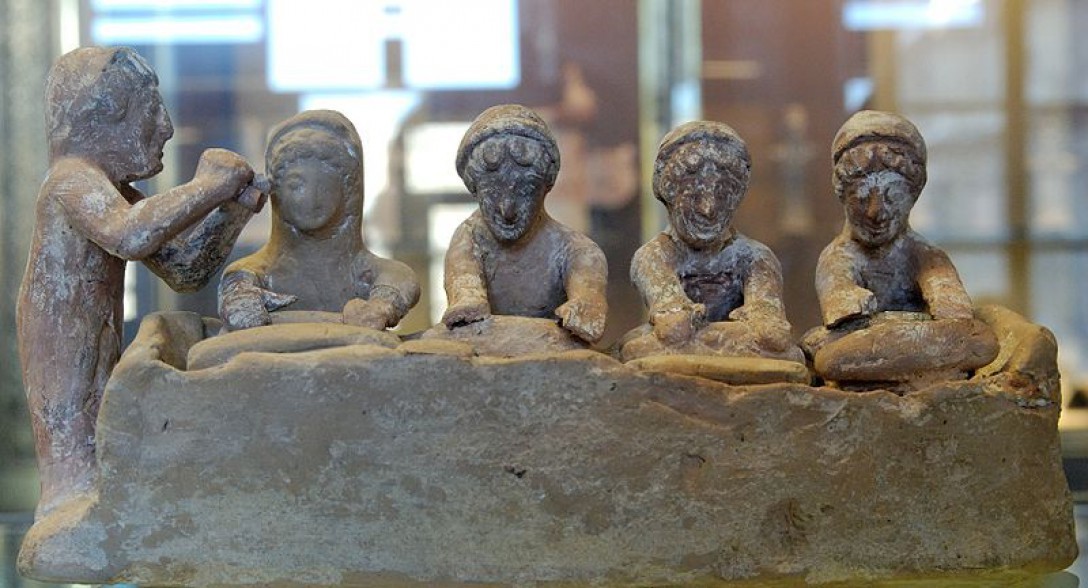In islands people put their easter roasts and meat pies in ovens.
In Cretan villages the use of ovens is essential year round; hence almost all houses have ovens. It is not a big surprise then that the Easter lamb or goat is cooked in the oven. In other islands (e.g. Kalymnos, Santorini) it was only the rich who had an oven in their backyard. But in many Aegean islands the tree vegetation is sparse, therefore the fuel shortage forced the people to share the use of an oven. On the other hand, in Crete there is an abundance of olive wood.
The lack of fuel also affected the cooking methods. People adopted heat efficient cooking methods; for example, in Siphnos, mastello, a specially made earthenware pot is filled with lamb, dill and red wine. Sometimes its lid is sealed with dough.
On Easter Saturday Kalymnian mouri -whole lamb stuffed with a mixture of rice, ground meat, chopped lamb liver, tomato, chopped onion, pine nuts and cinnamon powder- is baked in a sealed clay pot. The door of the village outdoor oven is also sealed with cement or clay. The meat is slowly cooked until the Easter day ( how symbolic the lamb in the tomb-liked oven, opened up after the second Ressurection is announced!). Today, many Kalymnians use olive oil metal cans instead of clay pots, even though it is widely believed that the meat doesn’t taste exactly the same.
In cities, people bring the lamb or goat to bakery shops to be cooked in the baker’s oven; however an increasing number of people is building their own outdoor ovens–they are considered a “must” for new house constructions.


I always enjoy telling of my island's traditions but enjoy even more reading about them from others and knowing these traditions are of interest to so many. Although I am from Kalymnos, my husband is from Agrinio and there it is not Easter unless the lamb is cooked on the spit. He has been good about accepting the Kalymnian tradition, which I insist on carrying on, but last year he longed for the spit-roasted lamb, so we made two– my Kalymnian mouri and his arni sth souvla–and just invited even more friends and family to celebrate the Easter holiday with us. Kalh Anastash kai Kalo Pasxa Mariana!